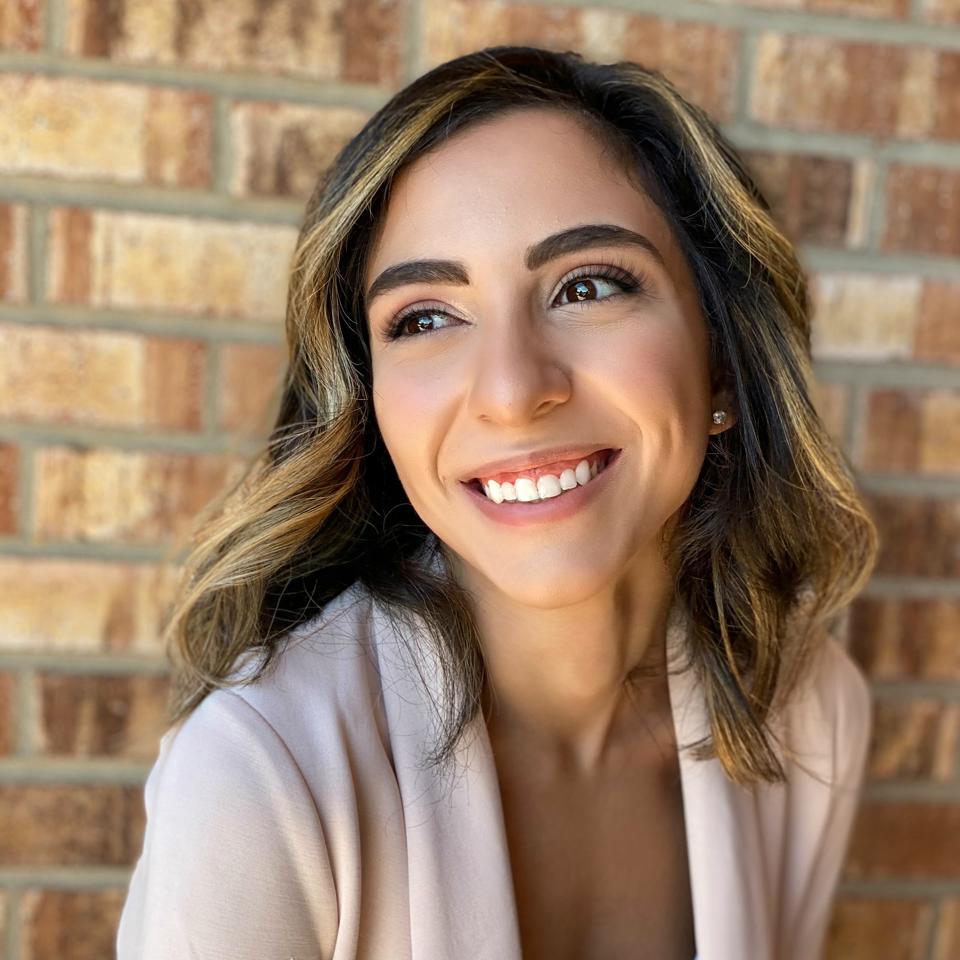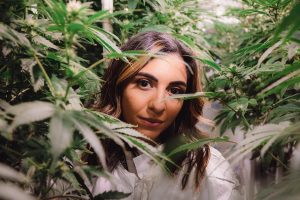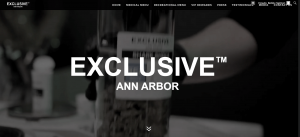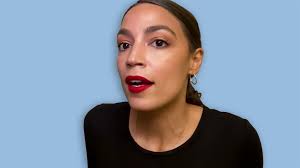On December 19, 2020, I talked in-depth with Narmin Jarrous, EVP of Business Development and Director of Social Equity at Exclusive Brands, about her role, being an executive, the importance of social equity in the cannabis space, and her future plans.
If you wish to re-publish this story please do so with following accreditation
AUTHOR: Heather Allman
PUBLISHER: CANNABIS LAW REPORT
“You have to take care of yourself first before you take care of your company. Your body needs rest, and if you don’t listen to what your body needs, it’ll make you listen.
We live in a culture that idealizes a ‘rise and grind’ mindset, but to a very unhealthy degree.”
As Director of Social Equity at Exclusive Brands, Michigan’s leading vertically integrated cannabis company and the first licensed recreational dispensary in the state, Narmin Jarrous is determined to lift up communities that have been disproportionately impacted by the prohibition of marijuana.
On December 19, 2020, I talked in-depth with Narmin Jarrous, EVP of Business Development and Director of Social Equity at Exclusive Brands, about her role, being an executive, the importance of social equity in the cannabis space, and her future plans.
CLR: How did you get started in Cannabis?
Narmin Jarrous: I worked on the original medical marijuana application for Exclusive Brands during my senior year of college, right before leaving the team to go into medical sales and marketing. It was my last project with the team, and I was so proud that we were granted that initial license.
I stayed in touch with everyone at Exclusive while I was gone because while I had my heart set on working medical sales, I had poured so much of myself into that initial application. While I was gone, I did more research on the cannabis industry and the need for social equity reform within the industry.
I reached out to my old team to give them my unsolicited opinions. I was just itching to get back into it, and the Exclusive leadership could see that and made me an offer. We always joke that it’s a very “prodigal son” like story.
CLR: When and how did you personally first discover the health benefits of cannabis?
NJ: I can’t explain how frustrated I am that I found cannabis so late in my journey. I didn’t start using cannabis until I came back to run Exclusive Brands’ Business Development division.
For more than a decade, I suffered from chronic pain and nausea, and had no choice but to take an endless cycle of prescription medications, suffer in silence, or both. It’s difficult to convey what it’s like to live with chronic pain, to know that it’ll always be a part of your life, and that you’ll never not be in pain.
Frankly, it gives you a really bleak outlook on your life. For me, to finally find something that alleviates the pain and gives me my quality of life back is truly such a gift. Also, the fact that I wouldn’t be able to use cannabis if I lived in another state scares me, and it makes my heart ache for those who don’t have access to it.
CLR: Can you share the most interesting story that happened to you since you began leading your company?
NJ: I’m currently in the process of creating a cannabis lifestyle and wellness brand around my struggle with endometriosis. Neno’s Naturals, which is based on my childhood nickname, is going to be on the market in early 2021.
Going through the research and development process from start to finish, creating a product line, packaging, and marketing campaigns for a brand that’s so personal has been very challenging. It’s hard talking about your chronic illness in such a public forum, but I’ve had so many people reach out and say it’s helped them take a second look at their health and helped them get a proper diagnosis of endometriosis.
The BBC recently reported that it takes an average of 7.5 years to achieve an endometriosis diagnosis, so if I can do anything to help lessen that gap, I feel like I have to.
CLR: What is it about the position of CEO or executive that most attracted you to it?
NJ: I really love being able to help form the company’s visions, goals, and culture. Having a voice in what initiatives we are a part of, or what communities we’re helping really gives me a purpose.
Just this year, we created an Exclusive Pride line of apparel, with donations going to the Trevor Project to contribute to mental health support for the LGBTQ+ community.
These are the things I love about my job; being able to positively impact things around me.
CLR: What do you enjoy most about your job? The upsides?
NJ: So much of my day-to-day work consists of licensing, and that’s something where I get to see the result of my work firsthand. I can spend months working on an application and then I get to see it through the build-out, employee recruiting, training, and grand opening.
It’s just so fulfilling to be able to actually see the benefits of your hard work, and it really helps that I work with such an amazing team. We really have such passionate people working for us. From our budtenders to our manufacturing specialists, everyone in our company is so dedicated to our vision.
CLR: What are the downsides of being an executive?
NJ: It’s the typical “weight of the world” problem. As an executive, your employees rely on you to be on top of your game 100% of the time. They rely on you for their livelihoods and in order to feed their families. Your mistakes don’t just affect you or your image or your work, they affect everyone that works for you.
CLR: In your opinion, what are the biggest challenges faced by women executives that aren’t typically faced by their male counterparts?
NJ: Every day of your career you’re going to have to prove to people that you deserve to be there. You’re going to have to fight to make yourself heard. You’re going to have to deal with people undermining your achievements. It’s so mentally taxing to spend so much energy not even doing the job, just proving to people that you can.
CLR: According to a previous interview, you left your role as Director of Marketing to run Exclusive’s Business Development Department because your values aligned with the overall company mission of “making clean and safe cannabis accessible to all while promoting social equity.” Who taught you about or how did you learn about the business?
NJ: Before Exclusive Brands, I worked for a restaurant management company running project management for wide variety of concession opportunities. I worked on several projects with airport concessions, which really gave me the framework of what it’s like to work in a highly regulated industry.
I learned how to start a business from the ground up from my boss at the time, which helped me contribute to Exclusive Brands’ foundation. Working on airport RFPs is surprisingly similar to doing licensing in the cannabis industry. My mom was also an amazing entrepreneur in her day.
She opened up a gym and daycare in Palestine in the late 80s, when there were very few businesswomen, and even fewer Arab businesswomen. I’m not too proud to admit there have been a lot of times in my career where I run ideas past my mother to pick her brain.
CLR: Do you have a mentor, concerning social equity?
NJ: My first Sociology professor at the University of Michigan, Dr. Carmel Price, taught the class about the “sociological imagination” and joked that she was ruining our lives by changing the way we look at almost every facet of society. She was absolutely correct, and that’s when I really began examining how our world is built so differently for so many different people.
Whether it was how food and deserts contributed to obesity and diabetes in low income communities or how crack cocaine sentencing differs from powder cocaine sentencing 100-1 to unjustly punish the poor, her lessons have stuck with me all these years and have really framed the way I look at the cannabis industry.
We’re building a budding industry right now and we have the opportunity to shape it however we want. I hope, as an industry, we make a stand to base our foundations in equity and reparations for communities that have been excessively policed for marijuana.
CLR: Explain to me what the comprehensive “Social Equity Program” is at exclusive brands?
NJ: Our Social Equity program, which people can apply to be a part of on our website, is a mentorship program where we help Social Equity Applicants (as defined by the State of Michigan) gain their licenses.
I personally help them fill out their applications, build their facility plans, and act as a liaison to the state on their behalf. Exclusive Brands also pays their application fees to the state. We believe that everyone should have a chance to participate in this industry, especially those from communities who have been excessively policed for marijuana.
CLR: How is your actual job different than the job you thought it would be?
NJ: I’ve always been a workhorse. I love doing the research, doing the work, and finishing projects. While I love the role I play in managing people and overseeing projects, I have trouble not jumping right in and taking control and actually doing the work. Managing people is so incredibly different from managing projects.
CLR: What did Michigan do right in their Cannabis legislation and framework?
NJ: I think above all, Michigan’s strengths lie within their willingness to work with stakeholders and listen to our concerns. The Michigan Marijuana Regulatory Agency has been open to our input from the start, and continues to work with licensees to help make the industry succeed.
I feel like nationwide, we have so many regulators who still look down on cannabis and treat it like it’s this dirty, undesirable thing they’re stuck with regulating. In Michigan, we have so many leaders with the same goal as Exclusive Brands: to make cannabis more attainable, and make sure people have access to the medicine they need.
CLR: What still needs improvement? What ideas or actions need to come to fruition for true cannabis social equity?
NJ: I think on a municipal level, there are problems with what social equity truly means, and that leaves room for those with means to take advantage of these programs. In Detroit, preferential treatment is being given to “legacy Detroiters” which, at first glance, seems great because we want Detroiters to have a shot at participating in the industry in their hometown.
What worries me is that when a residency is the only requirement, it leaves so much room for people who live in million dollar penthouses to take over the industry and effectively wipe out all current medical provisioning centers.
Cities need to take a moment to truly think about who they’re helping with these social equity reforms and find ways to help those who have truly been impacted by marijuana prohibition, not just those who are looking for their next big investment opportunity.
CLR: Tell me about your efforts to host regular training sessions and conjunction with the state. What are these sessions like?
NJ: The training sessions held with the state and those I conduct as a part of Exclusive Brands’ Social Equity program have been amazing. The MRA conducts surveys to their Social Equity applicants and figures out what sections of the applications are most confusing or they need the most help with, and I create a presentation to help guide them through it. We then hold a Q&A portion to clarify anything I might have missed and figure out what our next presentation should be based on.
In my one-on-one sessions with applicants, I’m able to provide a more personalized approach and go more into detail about the specifics of an individual’s application, which gives me the ability to help them to a greater extent.
CLR: Can you share the most interesting or challenging story that has happened to you since you began leading your company in your social equity role?
NJ: I’ve had several opportunities to speak at events regarding Social Equity, as it’s slowly becoming a buzzword in many markets. However, so many of these events require paid participation.
I understand events cost money to throw, however, it kills me a little inside to pay to participate in an event when I can put that money towards actually enriching communities that would benefit from Social Equity programs. It’s very difficult to pick and choose which events are worth it because we definitely do need more awareness around the subject.
CLR: Let’s go beyond Corporate Social Responsibility. Talk to me about “positive impact” and what that means for you? For Exclusive Brands? For Michigan?
NJ: Being a very “big picture” person is fairly new to me, so positive impact to me has always meant helping individuals get to where they want to be.
Whether that’s helping them kick start their business or helping them put food on their tables – I think that’s a positive impact. Exclusive Brands has helped me look at the different communities we can be helping on a larger scale. That’s really where our Social Equity program comes into play – we want to utilize it to enrich the communities around us, who have supported us along our journey.
Whether that’s through job fairs, resume building workshops, or increased mentorship programs, we hope to expand our program to do it all. We also push our main vision all throughout Michigan: to increase the access of safe cannabis to all people.
CLR: What is the biggest challenge you personally face in your social equity role? How do you solve it or work to change it?
NJ: It’s difficult to choose which candidates I’m going to work with. I absolutely detest filtering through candidates and turning people down. I’d love to help more people, but as it stands, I’m the only person working on applications and our mentorship program.
Thankfully, I’ve been able to hire more team members for 2021, so I hope to be able to expand our program and help even more people. Everyone who wants to should have the opportunity to participate in this industry, especially those who’ve had the system actively working against them.
CLR: What advice or words of wisdom can you give to other leaders, especially women and minority leaders, to help their teams and companies and brands to thrive?
NJ: Stick with your vision. I feel like women in particular are conditioned to automatically look to compromise, which can be necessary in business so much of the time. But if your entire career or company consists of you compromising, then you’re going to hit a point where you realize you’re miles away from your dream, your goals, and everything you’ve wanted for your vision.
CLR: If you could plan your dream dinner party and invite five guests, who would they be and why these five guests?
Angela Davis and Alexandria Ocasio-Cortez to discuss the struggles towards freedom and how we, as individuals, can fight towards systems that actually work for everyone.
Harry Styles because I can’t pretend I haven’t adored him since I was a teenager. I admire his individuality and unwavering courage to be himself in the face of a society that tries to crush people who don’t adhere to their standards of masculinity and femininity.
Chimamanda Ngozi Adichie because she is my favorite author, and a dinner party is nothing without a great storyteller.
Lastly, my mother, because she would be offended if I didn’t invite her.
CLR: Your personal favorite quote or phrase or life lesson or words you try to live by daily? Why these words?
NJ: My mom always said,
“Always remember that you aren’t better than anyone, but there isn’t a single person who is better than you.”
My generation built its entire aesthetic on self-deprecation and being transparent regarding our insecurities, what I like to call “toxic humility.”
While all this is great in moderation, I think what we see happening, especially with women and POC, is being expected to constantly be bringing ourselves down to maintain a modicum of modesty. My mom always pushed me to own my accomplishments in the same breath as my mistake
CLR: What are you most currently passionate about?
NJ: Right now my passion is social equity. I’ve been trying to get better at setting boundaries at work which means giving myself free time when I’m home and not working late into the night. But when it comes to my social equity projects, sometimes I’ll stay up past midnight to research, to work on applications, to see other ways I can help reconcile the fact that I run an amazing cannabis company freely and happily, while black people and people of color have been penalized for participating in the industry for decades.




























